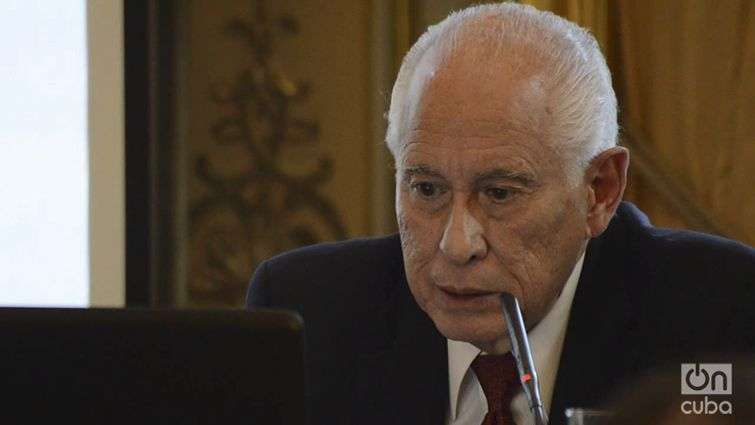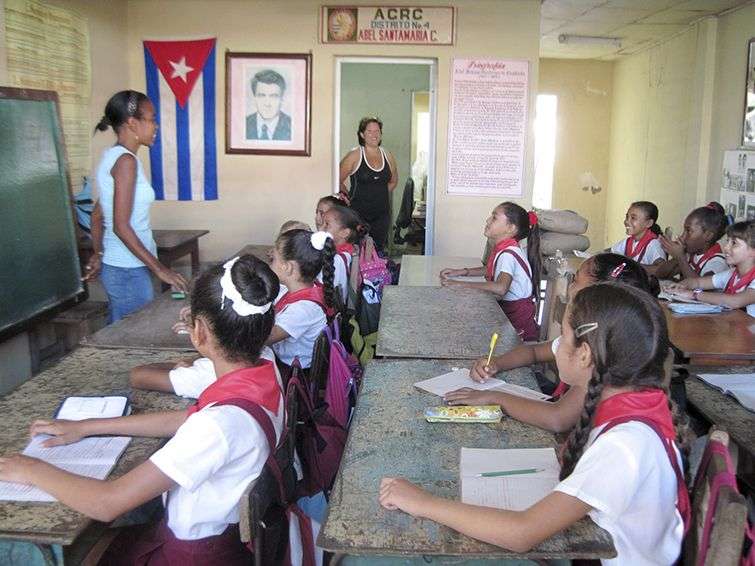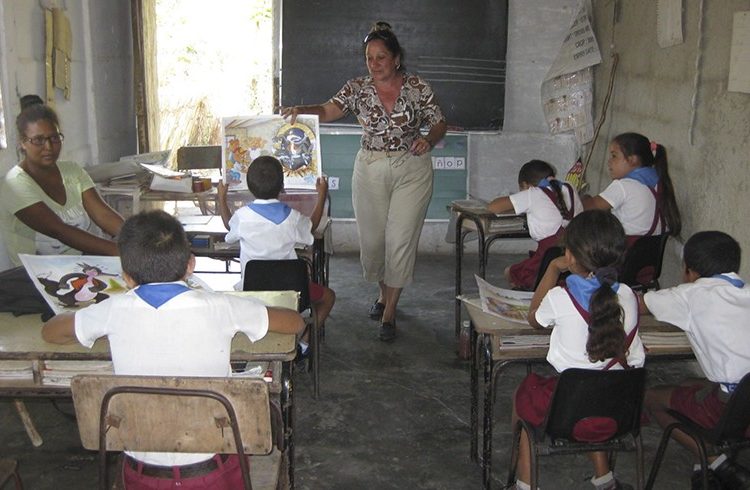For the first seven years of Cuba’s “reform process,” the focus of attention has been on the liberalization and restrictions of the country’s economy and politics. The social repercussions of these changes have been studied far less.
The effects of these adjustments on sectors as crucial for the country as public (and free) education must be described in greater detail, insists Cuban-American Carmelo Mesa Lago, recently granted a LASA life-achievement award, as part of declarations made for the Cuba Posible (“Possible Cuba”) project.
For Mesa Lago, it is very hard to say that a defined strategy for the transformation of Cuba’s educational system exists. “The Cuban government has not made any strategy, any specific education policy, public. What we’ve seen is a reduction in social spending in the fields of education, health, pensions, welfare and housing. As Raul Castro has said on several occasions, so much is spent in these that they are not financially sustainable,” he argues.
The academic catches sight of macroeconomic results in the policy of reducing social spending but reminds us that there is another, dark side to this: “There have also been significant cutbacks in health: rural hospitals have been shut down, the number of family doctors has been reduced to half because many have been sent to Venezuela, Brazil and other countries. No cutbacks in services such as education and health can be made without adverse social results.”
Such adverse results are being felt directly by Cuban families, commonly concerned with a lack of adequate resources for study, the number of teachers available, the physical condition of the classrooms and the quality of the education offered in the country’s schools.
The government’s consistent inability to provide schools with the needed number of teachers, in a context where more profitable options become available for pedagogy graduates, is precisely one of the phenomena addressed by Mesa Lago:
“A teacher has more and more employment options in the private sector: selling food, setting up a restaurant or taking out a license for private tutoring. The force pulling teachers out of State employment is very strong. The State gave teachers some nominal raises in salary, but, when you take inflation into account, the average wage continues to be below what it was in 1989.”

In September of 2014, measures which made teaching hours considerably more flexible and granted individual schools greater autonomy were announced, but it was immediately made clear that these were not related to the work of the commission.
These also reinstated the permission for secondary school students to have lunch at home or to receive lunches taken to them by their families, and left the much-criticized “school snack” offered at public schools a mere option among these. The measures also eliminate another egalitarian budgetary and food allocation made during the Battle of Ideas which quickly prompted dissatisfaction among students (owing to the quality of the bread and soy yogurt offered daily).
“Idealistic” practices begun during the Battle of Ideas have also been replaced with more “pragmatic” measures, Mesa Lago maintains, mentioning indiscriminate access to higher education as an example. “Under Fidel, university enrollment increased threefold, between 1989-90 and 2007-8 (the peak). In the specific case of the humanities and social sciences, it increased by a factor of 40. Following Raul’s reforms, general enrolment decreased by 72 percent and the humanities and social sciences saw an 83 percent enrolment drop (though, in 2014, it was still at 567{bb302c39ef77509544c7d3ea992cb94710211e0fa5985a4a3940706d9b0380de} in comparison to 1989).”
“On the other hand,” Mesa Lago continues, “between 1989-90 and 2007-8 enrollment in the natural sciences and mathematics decreased, and enrollment in technical and earth sciences went up by very little. All of these are essential to development and, even though there have been improvements with the reforms, enrollment in the natural sciences and mathematics were still 30 percent below 1989 levels in 2014. These figures make me think the adjustments have not been made systematically,” he remarks.
The inconsistencies and vulnerabilities of Cuban social planning also affect the development of a global education policy. The growing number of medical technicians and qualified workers – a phenomenon which also does not appear to come in step with the immediate needs and perspectives of local economies – was among the issues addressed during the interview.
On different occasions, Cuban sociologist Mayra Espina Prieto has also pointed to the social shortcomings of the current reforms. “The current agenda of Cuban reforms places social reforms second to economic aims, neglects its capacity for development and does not sufficiently address the problem of inequality or pre-existing disadvantages and social exclusion.”
Like education, social welfare, health and other areas on which the political consensus of the revolution has been built are being vigorously shaken during these times of change. Mesa Lago recommends that we do not lose these developments from sight, to be able to reduce the adverse effects of the reforms.











